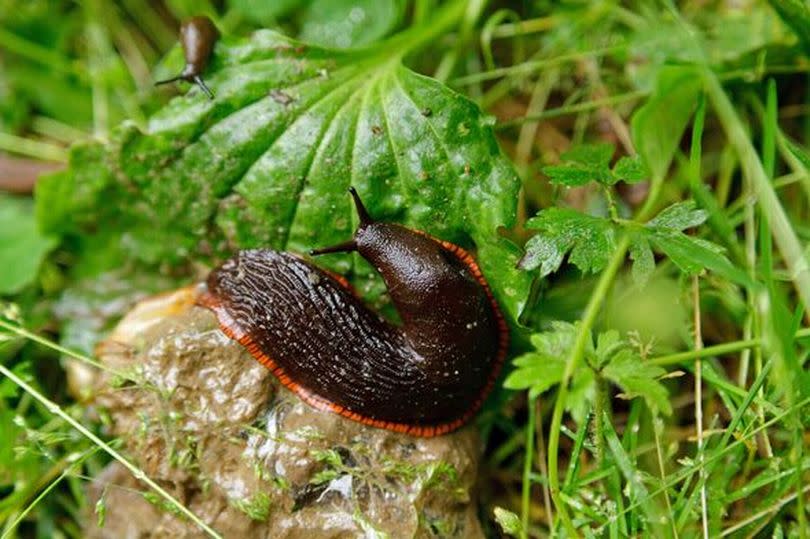Gardeners warned to avoid fridge staple slug and snail trick as it 'makes problem worse'

Garden enthusiasts have been warned about a common trick involving a fridge staple that could be attracting slugs and snails to their gardens. The 'eggshell trick' has been a popular method among gardeners for years, where dried, crushed eggshells are spread across raised beds, flowerbeds, and fruit and vegetable patches.
However, gardening experts have debunked this myth, stating it doesn't work as effectively as believed. The theory suggests that the sharp edges of eggshells deter slugs and snails from crossing them, thus protecting plants.
But in reality, these creatures can easily slime over even broken glass due to a protective layer of mucus on their underbody. This was demonstrated by All About Slugs, a gardening blogger who conducted an experiment.
Get the latest news straight to your phone by joining us on WhatsApp
They placed a lettuce leaf surrounded by broken eggshells and another without any protection. The following morning, slugs had crawled over the eggshells and consumed all the 'protected' lettuce, while the unprotected leaf was less damaged.
This indicates that not only did the eggshells fail to protect the plant, but they may have attracted more slugs, reports the Express. The blogger said: "First, the slugs are actually attracted to the eggshells. Even though these shells had been rinsed off they still had egg residue and bits of membrane on the inside. Apparently this is yummy stuff if you're a slug. Next, the slugs clearly don't care about crawling across the eggshells. They didn't just nibble around the edges, they lounged across them like the softest feather bed."
"Eggshells won't stop slugs from eating your plants, period. Worse yet, if the shells have any residue left on them they can actually attract slugs! Better to save those eggshells for the compost and try a method that really works."
In order to effectively deal with slugs, use non-toxic slug pellets which pose no threat to birds and take regular rounds of your garden to find and dispose of slugs and snails every day. This hands-on approach will be most effective in the long run.

 Yahoo News
Yahoo News 
